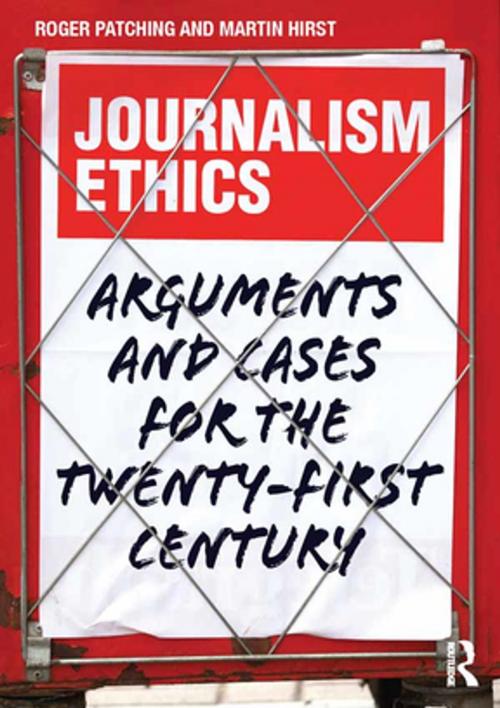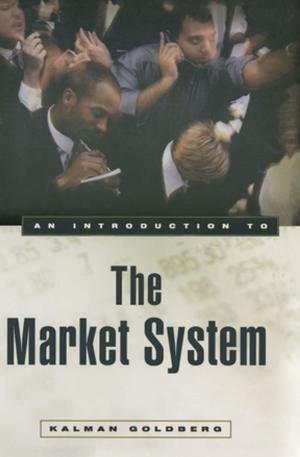Journalism Ethics
Arguments and cases for the twenty-first century
Nonfiction, Social & Cultural Studies, Social Science| Author: | Roger Patching, Martin Hirst | ISBN: | 9781317963738 |
| Publisher: | Taylor and Francis | Publication: | November 20, 2013 |
| Imprint: | Routledge | Language: | English |
| Author: | Roger Patching, Martin Hirst |
| ISBN: | 9781317963738 |
| Publisher: | Taylor and Francis |
| Publication: | November 20, 2013 |
| Imprint: | Routledge |
| Language: | English |
Journalism Ethics: Arguments and Cases for the 21st Century explores the major ethical dilemmas facing journalists in the digital age.
Engaging with both the theory and practice of journalism ethics, this text explains the key ethical concepts and dilemmas in journalism and provides an international range of examples and case studies, considering traditional and social media from a global perspective.
Journalism Ethics offers an introductory philosophical underpinning to ethics that traces the history of the freedom of expression from the time of Greek philosophers like Aristotle, through the French and American revolutions, to modern day.
Throughout the book Patching and Hirst examine ethically-challenging issues such as deception, trial by media, dealing with sources and privacy intrusion. They also explore continuing ethical fault lines around accuracy, bias, fairness and objectivity, chequebook journalism, the problems of the foreign correspondent, the conflicts between ethics and the law and between journalists and public relations consultants.
Concluding with a step-by-step guide to ethical thinking on the job, this textbook is an invaluable resource for students of journalism, media and communication.
Journalism Ethics: Arguments and Cases for the 21st Century explores the major ethical dilemmas facing journalists in the digital age.
Engaging with both the theory and practice of journalism ethics, this text explains the key ethical concepts and dilemmas in journalism and provides an international range of examples and case studies, considering traditional and social media from a global perspective.
Journalism Ethics offers an introductory philosophical underpinning to ethics that traces the history of the freedom of expression from the time of Greek philosophers like Aristotle, through the French and American revolutions, to modern day.
Throughout the book Patching and Hirst examine ethically-challenging issues such as deception, trial by media, dealing with sources and privacy intrusion. They also explore continuing ethical fault lines around accuracy, bias, fairness and objectivity, chequebook journalism, the problems of the foreign correspondent, the conflicts between ethics and the law and between journalists and public relations consultants.
Concluding with a step-by-step guide to ethical thinking on the job, this textbook is an invaluable resource for students of journalism, media and communication.















